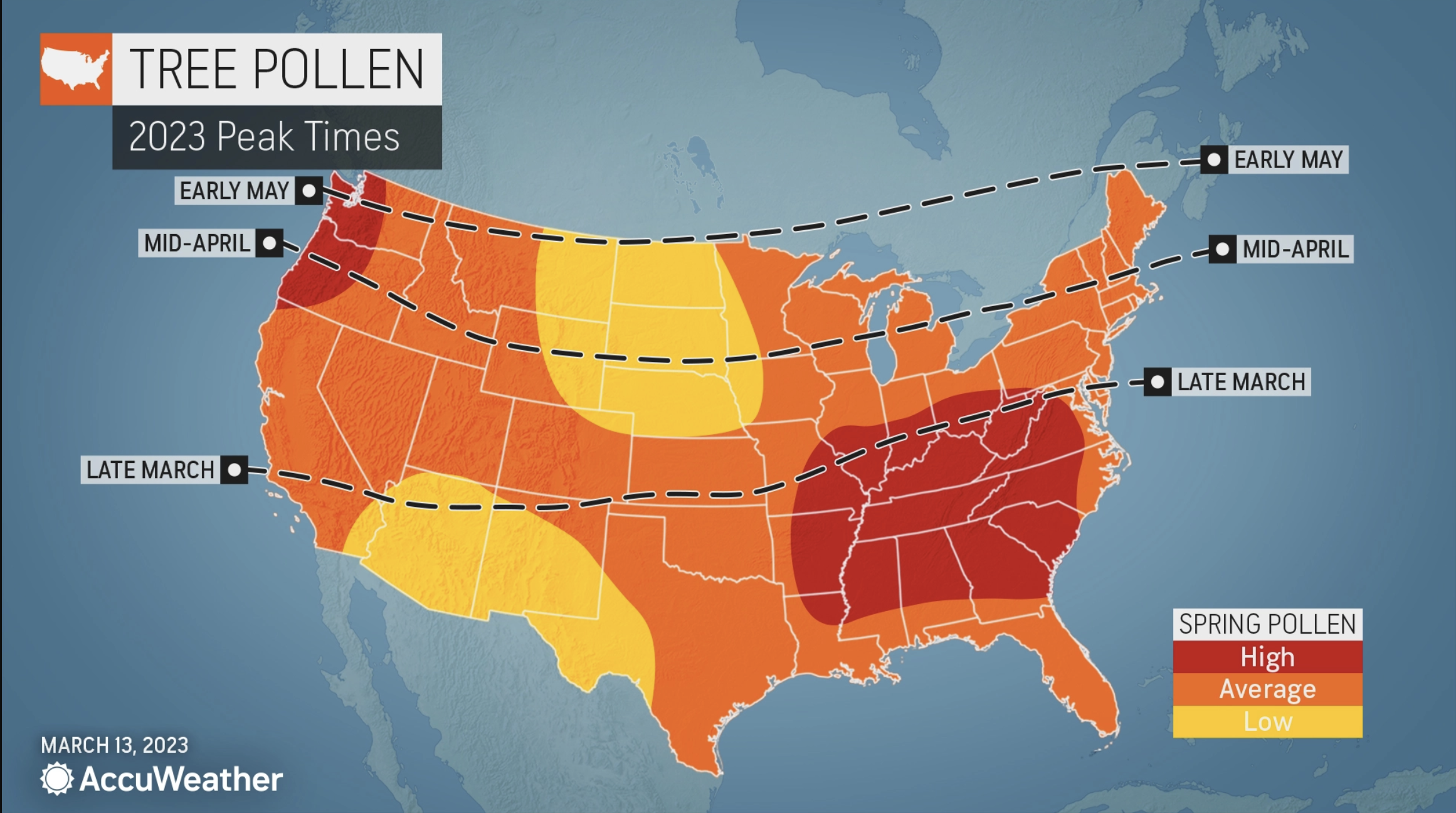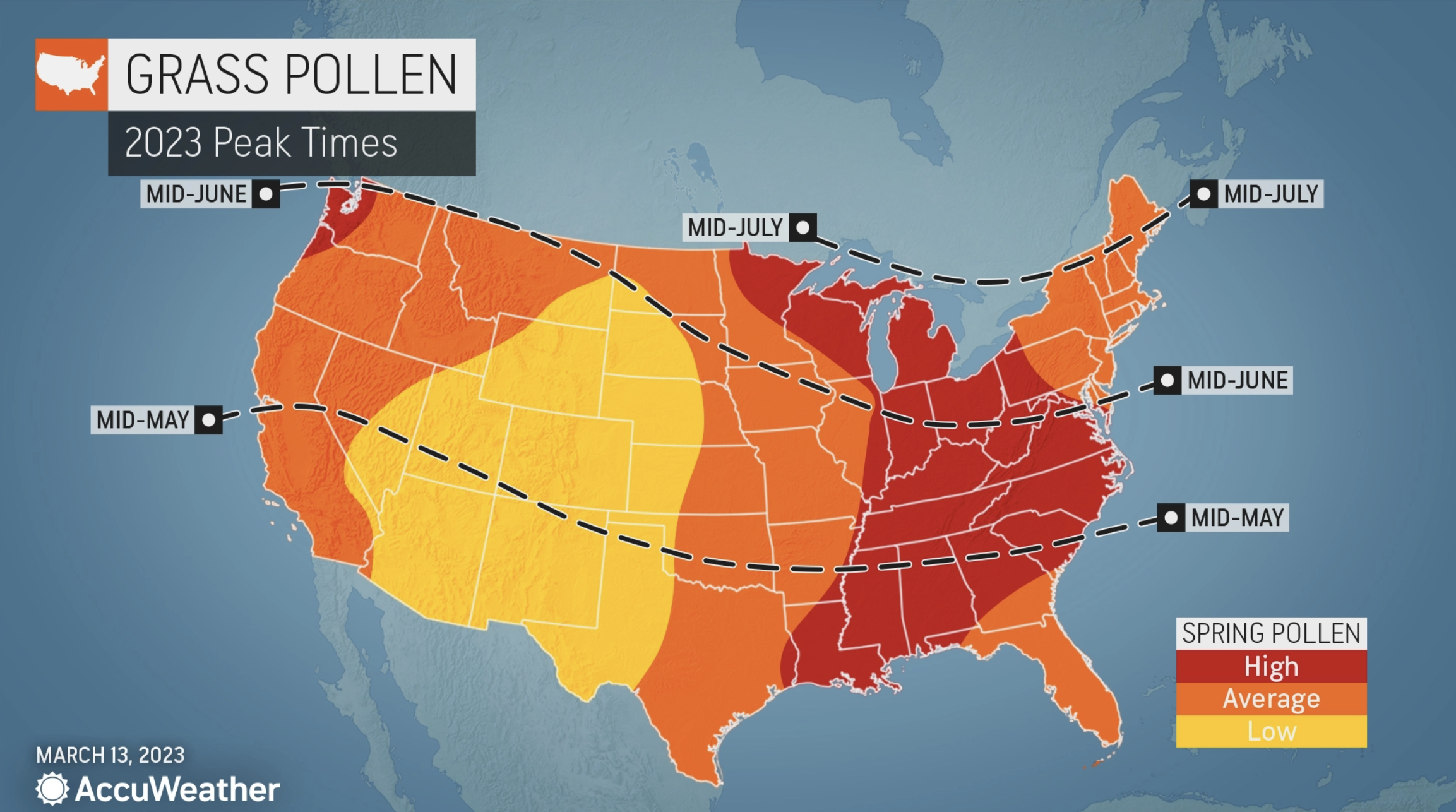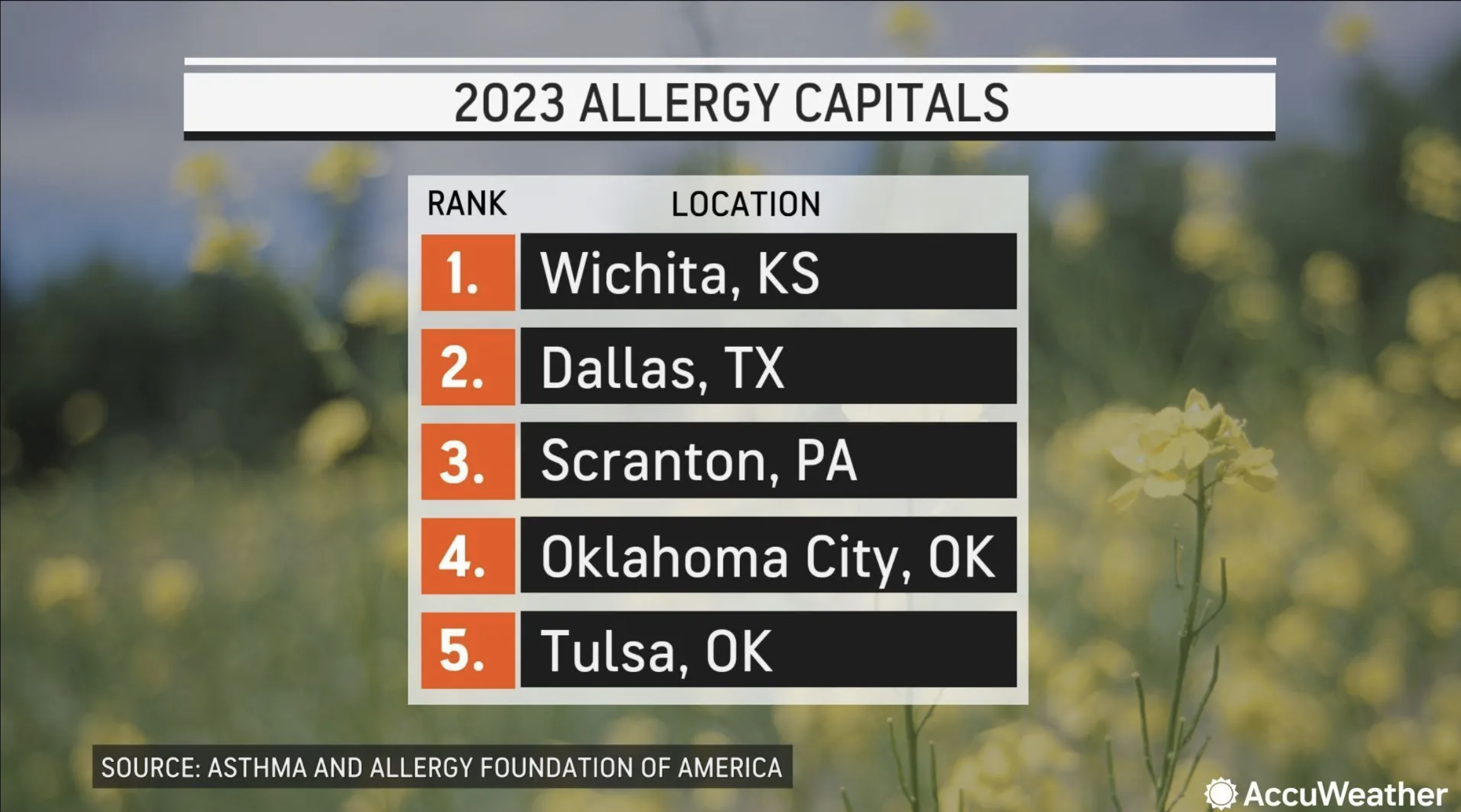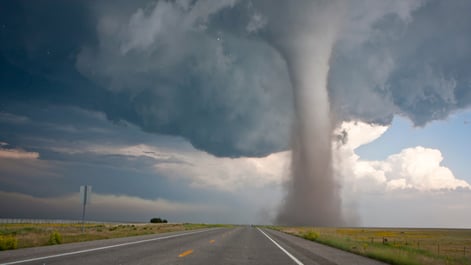Why the pollen forecast matters to your business
.jpg?width=2119&height=1192&name=GettyImages-994297236%20(1).jpg)
Summary
Believe it or not, allergy season can significantly impact your business. Here’s why you should pay attention to the pollen forecast.
Key Highlights
More than 50 million Americans are impacted by seasonal allergies each year
Different pollens impact people at different times- depending on the area and weather conditions
AccuWeather For Business Air Quality Alerts can help your business get ahead of this allergy season
GET AHEAD OF ALLERGIES WITH ACCUWEATHER
More than 50 million Americans are impacted by seasonal allergies each year. Having a plan for allergy season can be a game changer for your business, not to mention a money maker. AccuWeather For Business Air Quality Alerts can help your business get ahead of this allergy season.
WHEN DOES THE SEASON START AND END?
How long pollen or allergy season will last and how bad it will be, depends on forecast data, weather patterns, and climate research. Various pollens impact people in different parts of the season, depending on the area and weather conditions. Tree pollen is the first pollen producer of the spring, followed by grass pollen in the summer and weed pollen in late summer and early fall. The warmer, windy, and dry days will increase allergy symptoms. Rainy windless days decrease the amount of pollen. Drought conditions can reduce the amount of grass and weed growth, reducing the amount of pollen also.
TYPES OF POLLEN:
Tree Pollen: The Northeast will see a higher-than-average allergy season, whereas a lower-than-average tree pollen season is expected from Nebraska to North Dakota.

Grass Pollen: Above-normal grass pollen levels are forecast to extend across the eastern third of the country this year. Grass pollen levels will peak across the Gulf Coast states by early to mid-May. Businesses in metropolitan areas like Seattle, Washington, and Portland, Oregon, could experience some of the worst grass pollen levels this season.

Weed Pollen: This one will dominate the entire East Coast. Across the Gulf Coast and the Southeast, weed pollen is expected to pick up later than usual, peaking from late July to mid-August. Weed pollen will be lower than average across the northern and even parts of the central Plains.
Several types of businesses will be impacted by allergy seasons, such as healthcare providers and lawn care companies. Like any other weather event, your business needs to be prepared for allergy season by ensuring supplies for clients and customers.
- Healthcare Providers: Doctors and allergy clinics need to monitor the pollen count in the area to help patients manage allergy symptoms.
- Pharmaceutical companies: The pollen forecasts can help companies anticipate the seasonal allergy medication demand.
- Landscaping Companies: Managers should monitor pollen counts to decide the most appropriate plants for customers.
- Event Planners: Knowing the pollen forecasts can help wedding coordinators help plan events at appropriate times to minimize the impact on guests who may experience allergies.
- HVAC Companies: These companies can use pollen count stories to help market their air filtration.

Get the air quality forecasts only AccuWeather For Business can provide. AccuWeather and its wholly-owned subsidiary, Plume Labs, combine their respective forecasting and air pollution expertise to provide superior air pollution forecasts, warnings, and insights. AccuWeather will monitor your specific asset locations 24/7, 365 days a year, and send site-specific, proactive notifications of unsafe air quality conditions.
The notifications—delivered through the SkyGuard® warning system within the AccuWeather For Business Portal and Mobile App—will alert your team to further mitigate air quality risk at the location impacted. The thresholds are directly tied to the levels for which regulators require actions.
Contact us today for more information on how AccuWeather For Business can help your organization.







